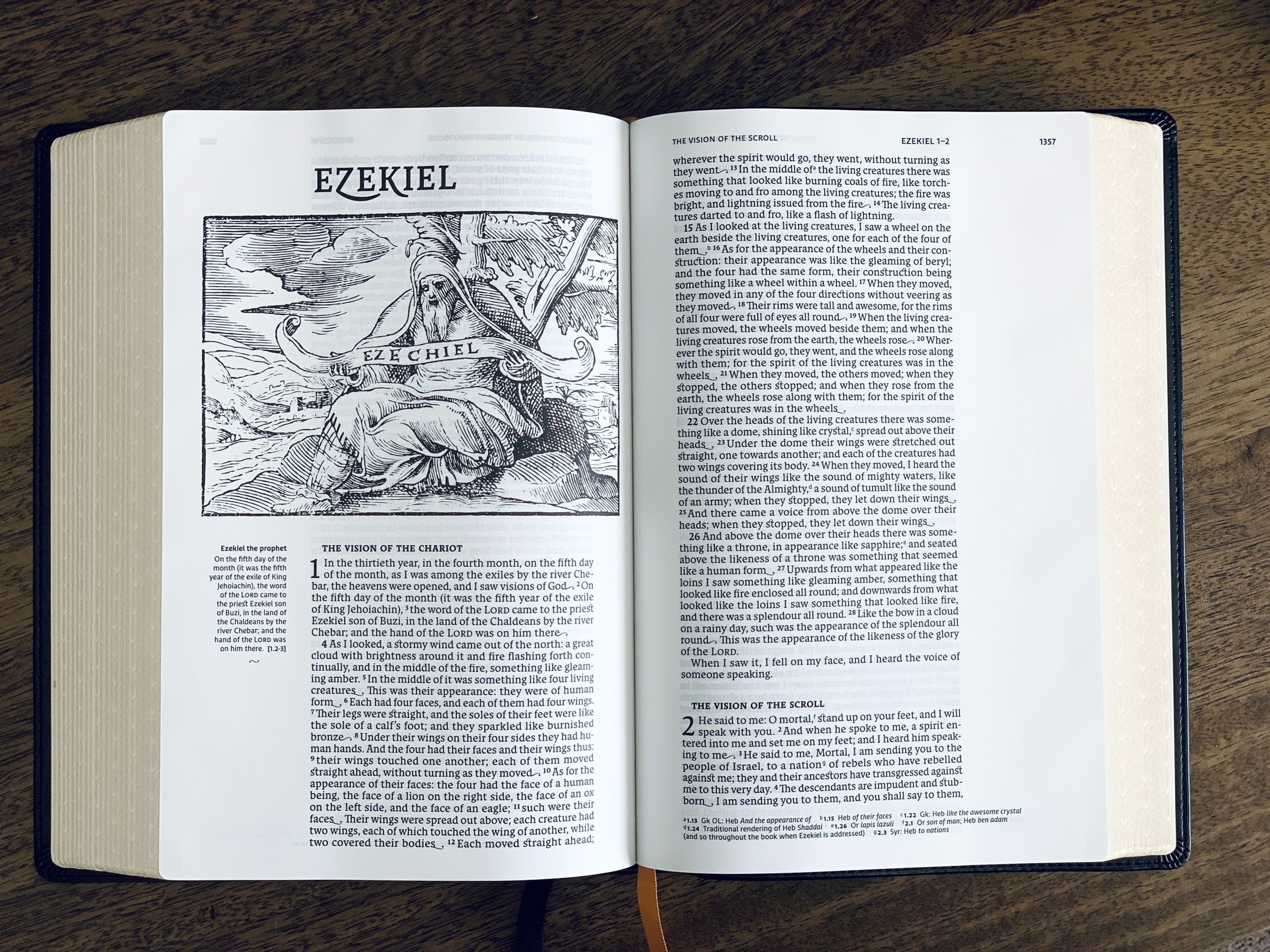Podcast: The Book of Ezekiel

Check out the So We Speak podcast on Apple Podcasts or Spotify.
Ezekiel is one of the strangest of the major prophets. His life became his message, and he prophesied through the worst period of Israel’s history. But Ezekiel’s message wasn’t all lament and woe. Captured by the glory of God, he foretells the restoration and redemption of Israel, a time when they will have new hearts and spirits to live with God forever.
To understand the prophets, one must read them as “contextual parable tellers” – that is to act out a message with a visual action or prompt from God. Isaiah and Jeremiah also do this. This is how their lives reflected their messages. For example, Jeremiah smashed clay pots as a demonstration to Israel if they did not repent (Jeremiah 19).
Ezekiel was a contemporary of King Josiah who reformed the worship of Israel. Ezekiel was exiled to Babylon from 597 to 571 BC and viewed the exile as one away from the land of Israel. However, Jeremiah remained in Israel during the Babylonian exile. They were viewing the same events from two different perspectives.
The book of Ezekiel is outlined below:
-
Ch. 1-24: Coming Judgment
-
Ch. 1-2: Vision of God’s glory
-
Ch. 8-11: Judgment in the Temple
-
Ch. 16: Jerusalem the Prostitute
-
Ch. 24: Leading up to the destruction of Jerusalem
-
Ch. 25-32: Oracles against the Nations
-
Ch. 33-48: Kingdom and Restoration
-
Ch. 36: New covenant – new heart and spirit
-
Ch 37: Valley of Dry Bones
-
Ch. 40-48: Vision of the new Temple (Ch. 43: The glory of God returns to the Temple)
Two major themes emerge from this book: God’s holiness and majesty and God’s plea for Israel to return.
Underneath the sense of God’s holiness and majesty in this book, we understand and appreciate God’s sovereignty over the nations and Ezekiel’s individual life. God’s sovereignty is not just corporate, but it is personal.
Finally, God’s desire is for Israel to return to him. This plea is recorded 65 times in Ezekiel. Ultimately, as New Covenant believers, we know we can only have a relationship with Christ through his blood and by his intercession. Just as God wanted his people to be with him, we see this same desire in the heart of Christ.
Jesus’ prayer echoes this beautifully:
“Father, I desire that they also, whom you have given me, may be with me where I am, to see my glory that you have given me…” (John 17:24).
If the Father and the Son both strongly desire to be with their people, we are eternally secure and not even Israel’s exile into Babylon could stop their sovereign God from being faithful to his promises.
Brittany Proffitt lives in Dallas, TX, holds a BA in Religion, and is a student at Southwestern Baptist Theological Seminary.





